No products in the cart.
Account
Login
Cart
4
Key Speakers

Sarah SchallesBio
Architect-Urban Planner, Director of the Swiss Association for Sustainable NeighborhoodsEcological labels are now commonplace in the fields of construction, design, and planning, both in Switzerland and abroad. They help stakeholders better evaluate projects at all scales. However, the labels differ significantly in their design, metrics, and applications. This presentation will provide a critical perspective on these labels across Switzerland.

Catherine MaumiBio
Professor of Architectural History and Cultures ENSA Paris-La VilletteThis course will revisit the ideas put forward throughout the 20th century by various Anglo-Saxon personalities—including forestry engineers, urban planners, and landscape architects—who were concerned with the medium- and long-term consequences of human action on the environment. Rooted in an intellectual lineage dating back to the 19th century (Thoreau, Marsh), these thinkers sought to explore and experiment with design methodologies that embraced a different relationship with nature and a mode of human settlement more respectful of resources, ecosystems, landscapes, and human beings.
Set apart from debates and initiatives focused on strengthening nature conservation, these ideas remain particularly relevant because they aim to establish the foundations of a science of human settlements on Earth—one that prioritises the preservation of its fundamental balances.

Elena HavlicekBio
Doctor of Ecology and Soil ScienceSoil is a functional interface of all terrestrial environments, whether natural, agricultural, or urban. To understand soil, its role, and its functions, it is essential to place it within the broader functioning of ecosystems. The first part will focus on the principles of ecosystem functioning, soil formation, and the properties that determine how humans use them.Urban soils are often degraded, contaminated, and scarce in cities. The second part will explore their crucial role in water and climate regulation, as well as potential strategies for their rehabilitation.
Urban Soils: (Part of) the Solution for Sustainable Cities?
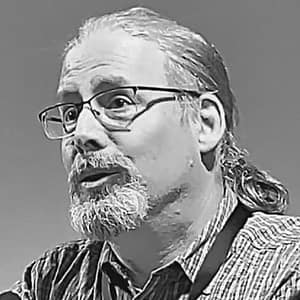
Christian ArnspergerBio
Professor of Sustainability and Economic Anthropology, Institute of Geography and Sustainability, Faculty of Geosciences and Environment, University of LausanneThe social metabolism of our capitalist industrial economies is strictly unsustainable. Post-growth now constitutes the essential horizon of our time. We must imagine other forms of economy – or rather, we must finally apply the knowledge that we already have, and that a series of actors in our societies persist in ignoring or distorting. Short-term opportunism and the structural injustice of extractive capitalism combine with existential fears of finitude and death to keep our political and economic elites, but also the majority of citizens, in denial of the necessities of life. the decrease. Based on the approach based on socio-ecological metabolisms, and in particular invoking the imagination of the “solarpunk” movement while drawing inspiration from the socio-economic implications of “terror management theory”, we will reflect on the obstacles and fears which currently block the ecological transition and we will explore ways out of these blockages.
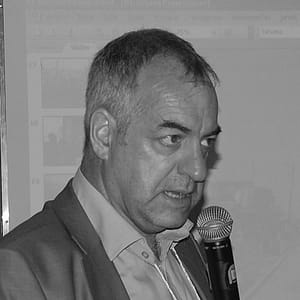
Graham AlabasterBio
Chief Geneva Office at UNHabitat
Claudia R. BinderBio
Professor for Human-Environment Relations in Urban Systems – EPFL ENACThe current climate, energy and societal crises have shown that we need new tools for designing measures and strategies for achieving a more sustainable future. At the core of addressing the challenges is the energy transition. Scholars have found that the transition towards a low-carbon energy regime requires not only the development of new energy technologies but also deep-structural changes in society: these concern radical, systemic shifts in values and beliefs, in patterns of social behavior, and in governance regimes. Recently the term of Social Tipping Points (STPs) has been coined as being crucial to design policies that push societies towards sustainable transition pathways and support urgent climate action. STPs are defined as “non-linear processes of transformative change in social systems”. After surpassing a certain threshold, both the structure and the dynamics of the system change, and strongly reinforcing feedbacks emerge which can amplify a small change, leading to a new state of limited reversibility. This contribution will provide systemic understanding of transition pathways and invite on the reflection of STPs.
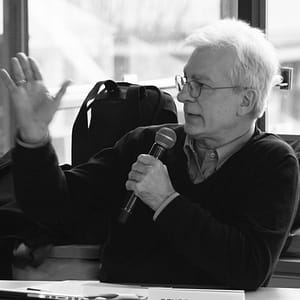
Dominique BourgBio
Philosopher, Honorary Professor University of Lausanne (UNIL) - Member of the ECP scientific councilThe idea is to provide an overview of global challenges with three main entries: climate change, the collapse of biodiversity, especially arthropods, and a state of resources with some key benchmarks. We will also address the democratic, social and cultural context within which responses to the challenges must be constructed. We will then sketch out some possible solutions by focusing on three main axes: the economy with the idea of permacircularity, democratic institutions, and finally the cultural shift that is currently taking place.
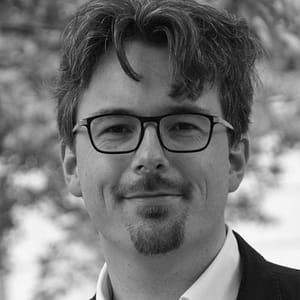
Tobias BroschBio
Associate Professor – Consumer Decision and Sustainable Behavior Lab – University of GenevaDeveloping a more sustainable way of life is one of the most urgent tasks facing our planet and its inhabitants. While the majority of people are now aware of such issues, such as climate change or biodiversity loss, too little is being done to translate this knowledge into concrete and sustainable action. To promote the necessary behavior changes, research is studying the determinants of sustainable behavior, and policymakers have started to apply behavioral knowledge to develop new intervention strategies. In this presentation, we will discuss the most recent psychological knowledge about the factors that can motivate people to take sustainable actions or that can hinder those actions. Different intervention strategies aimed at promoting sustainable action, such as information provision, motivational approaches and “nudges” will be presented and discussed.

Duncan Baker-BrownBio
Architect, Founder at BakerBrown – School of Architecture and Design – University of Brighton
Sarah BarthBio
Architect, Atelier für ArchitektologieThe climate crisis and the drastic loss of biodiversity are the most serious problems of our time. The construction industry is responsible for a major part of the man-made climate change. For us, as architects, this means that we have the possibility, and even the obligation, to make a difference for the future generations by changing our practices. Sustainability has to become an important criteria in the everyday decision-making of architects. This results in completely new draft and design concepts.
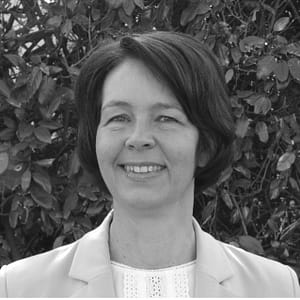
Carmen De JongBio
Professor of hydrology, University of StrasbourgWater resources are essential for humanity. Today, major challenges concerning water resources include the identification of the spatial and temporal dynamics of water availability and how these are impacted by climate change and anthropogenic pressure. The vulnerability and resilience of water resources depend on their geographic context, from mountains to plains, across arid to humid climates, and the extent of impact from water abstraction. The course covers these general themes and concludes with a special focus on the Greater Geneva Region. This will include the role of water supply from Lake Geneva and its surrounding glaciers, the impacts of climate change such as severe glacier retreat, heatwaves, and droughts, as well as groundwater lowering. The course ends with perspectives on responsible water management.

Peter DroegeBio
Urban Designer, Urban Sustainability Expert - Director of the Liechtenstein Institute for Strategic DevelopmentOur quest is the establishment of a design culture that has the healing, sustenance of the planet’s life support capacity as its very aim. This vision is still Utopian to some, but has become reality for many others. The four enabling realms of regenerative design, technology, finance and planning inform this intensive session – crafting our collective habitat while working to support planetary habitability. This session encompasses all 17 Sustainable Development Goals, and pursues RCP 0 and SSP 1. These are the hallmarks of the Liechtenstein Institute for Strategic Development’s teaching and practice: www.eurisd.de; www.eurisd.org; www.uet2.com.
More than civilization is at stake: the very home of life is. All of evolution depends on a stable climate, and the very design and direction of our culture, economy, society, cities and the built environment at large are now being challenged in the very ways they are conceived and perform.
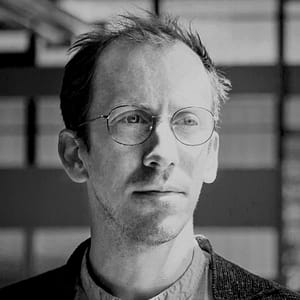
Corentin FivetBio
Professor of Architecture and Structural Design, EPFL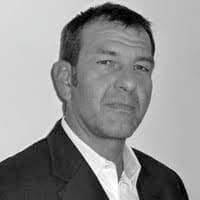
Sylvain FerrettiBio
Director General, Office of Urban Planning, Canton of GenevaReview session of the introductory part of the Theory Masterclass and visit to the neighborhood selected for the Design Studio.
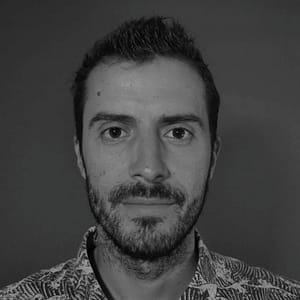
Aristide AthanassiadisBio
Senior researcher – laboratory of human-environmental relations in urban systems – epfl
François GemenneBio
Director of the Hugo Observatory at the University of Liège, lecturer at Sciences-Po and Sorbonne UniversityOur entry into the Anthropocene, this new geological epoch which follows the Holocene, and in which humans are the main forces of change on the planet, requires a profound renewal of the social sciences, and geopolitics is primarily concerned by this revolution. It is now becoming impossible to distinguish between the Earth and the world, which would only be the political and social organization of the planet.
For a long time, environmental issues were kept out of politics: the Earth was ruled by physical and biological laws, while the world was ruled by political and economic laws. This separation has notably led to the current ecological crisis, which has made many geologists say that we have now changed geological epochs. In the Anthropocene, the laws of nature overtook those of human history and geography.
And this transformation of human relations with the Earth requires, in order to think about this new Earth, to invent a new geopolitics, or – to use an expression of Bruno Latour – a Gaïapolitics: literally, an Earth policy.

Marcellin BarthassatBio
architect-urban planer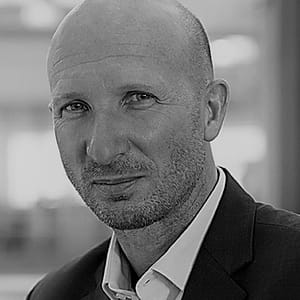
Philippe BihouixBio
AREP general manager
Hélène BougouinBio
Agricultural engineer specialized in economics and business management
Camille GillootsBio
Project Manager, Competence Centre for Sustainability, UNIL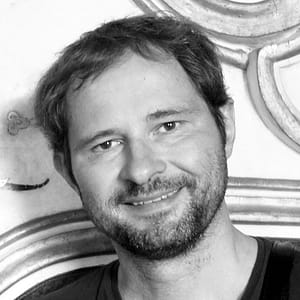
Gregory BussienBio
Architect, atelier descombes Rampini sa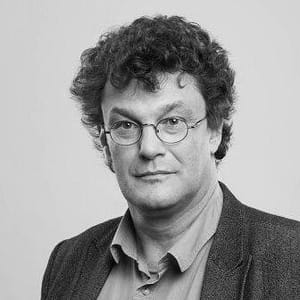
Vincent KaufmannBio
Professor of urban sociology and mobility analysisThe UN has identified three strategies for decarbonizing mobility, emphasizing that they complement each other: technological innovation and optimization of transportation systems, modal shift from cars and airplanes to less polluting modes of transportation, and avoidance of motorized travel. However, several recent studies show that the vast majority of cities and countries around the world rely solely on innovation to decarbonize mobility and achieve the neutrality goals set by the Paris Climate Agreement (2015) for fear of impacting lifestyles. Yet achieving these goals requires acting on all three identified levers together. The fear of public authorities acting on modal shifts and the avoidance of motorized travel is undoubtedly unfounded, given that a significant portion of the population is ready to take the step. Regarding the social aspects of mobility, it is also notable that when measures are taken to discourage the use of automobiles, they are often blind to social inequalities and provoke rejection among the working classes, particularly because of the often particularly strong dependence on automobiles in these population categories. This is particularly due to the fact that they proceed by adding taxes that are supposed to be incentives and which concern more polluting vehicles (vignettes), access to certain areas (tolls) or the price of parking. Multiple examples could be cited throughout the world. The Yellow Vests in France, of course, but also the extension of London’s urban toll, the price of transport in Santiago, Chile, and the Swiss people’s rejection of the CO2 law in 2022. The risk of these political errors lies in nothing less than the abandonment of carbon neutrality policies due to a lack of popular support. Faced with these observations, it is imperative to conduct a fundamental reflection on space at all scales to develop territorial planning that allows and encourages the adoption of lifestyles free from dependence on mobility.

Gregory GiulianiBio
Head of the Digital Earth Unit (GRID-Geneva) & Senior Lecturer in Earth Observations - University of GenevaThe Swiss Data Cube is a new digital technology for efficiently organizing Earth observation data (in particular satellite data) by gathering all satellite images in space and time for a given period and a specific region. Switzerland is the second country in the world to have a “data cube” after Australia. There are numerous possibilities for analyzing this standardized data and for applications, particularly in monitoring the evolution of the territory in order to anticipate the future. In addition, the algorithms developed on this platform are shared and can be reused for various projects. In this presentation, we will explain how this technology is used to help decision-makers better understand environmental issues (and in particular the impacts of climate change) . Thus ideally descision-makers can make decisions based on evidence.
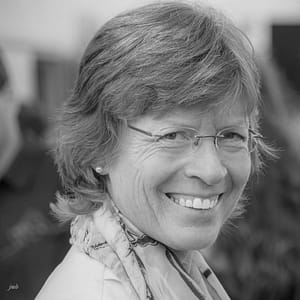
Martine RebetezBio
Climatologist, University of NeuchâtelThe climate is changing much more rapidly than any model could have predicted, because human activities are increasing the use of fossil fuels every year. Extreme events are becoming stronger and more frequent. The process can be slowed down, but there is no going back. The built environment is a key element in both adapting to these changes and reducing greenhouse gas emissions.

Susanna HechtBio
Professor, International History and Politics - IHEID
Andrea GrittiBio
Associate Professor - Department of Architecture and Urban Studies at the Politecnico di MilanoA detailed analysis of the architectural theories and projects that contributed to the construction of cities and landscapes in the 20th century reveals two opposing tensions: on the one hand, the choice to support the economic exploitation of natural resources; on the other hand, the refusal to do so in the name of an early ecological awareness. These two tendencies not only manifested themselves as contrasts between different professional groups and cultural movements, but even as sometimes indistinguishable parts of the biography of the same author. In the face of these ambivalences, excavating the vestiges of modernity is now more necessary than ever to reinvest the capital that architectural theories and projects have accumulated along the complex path of industrial society.

Alexandre HedjaziBio
Lecturer – Institute of Environmental Sciences – University of GenevaIn a context of increasingly shifting global ecological, societal, economic, and geopolitical dynamics, cities are increasingly becoming the epicenters of polycrisis. However, cities are also at the forefront of effective action, policy innovation, resilience building, and best practices. By embracing foresight and strategic planning, cities can transform potential crises into opportunities for renewal and growth.
The “International City Governance and the Ecological Transition” roundtable aims to invite speakers from leading international organizations to explore the importance of foresight in understanding global dynamics of change and the essential role of cities in addressing these challenges.
Guests
- Cristina Bueti – ITU
- Chantal Line Carpentier – UNCTAD
- Rajeev Issar – UNDP
- Dmitry Mariyasin – Deputy Executive Secretary of the UN Economic Commission for Europe (UNECE)
- Bruno Lanvin – Institut Descartes
- Gulnara Roll – UNEP
Program subject to change

Pierre HollmullerBio
Lecturer / Scientific Assistant, Department F.-A. Forel of Environmental and Water Sciences – Faculty of Sciences – University of GenevaEnergy is omnipresent, in the form of the most various demands, which can be satisfied from diverse resources, through a myriad of transformers allowing extraction, transport, storage and adaptation to the desired use. During this conference we will present the basic concepts and challenges for understanding the energy system as a whole, with a focus on the domain of buildings (which represents a good 40% of the demand of our societies). Within this framework, we will discuss the challenges related to renewable energies (decarbonization) as well as the decrease in demand (efficiency, sobriety).

Sonia LavadinhoBio
Founding director of Bfluid foresight researchInfos à venir

Anthony LehmannBio
Associate professor, Institute for Environmental Sciences – University of GenevaIn this course, we explore the evolution of the concept of Ecosystem Services highlighted in the 2005 UN report entitled “Millennium Ecosystem Assessment” which led to the creation of the Intergovernmental Platform on Biodiversity and Ecosystem Services (IPBES) ten years later. We will analyse the data and tools used to quantify and map these services, and we will examine the limitations of this approach when addressing Sustainable Development Goals (SDGs). This reflection will lead us to the concept of the Nexus formed by the different SDGs and their dependence on services provided by nature.
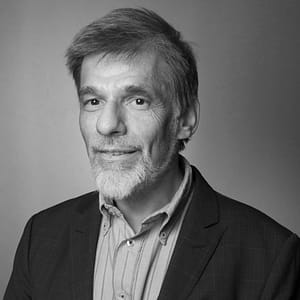
René LongetBio
Sustainable Development Expert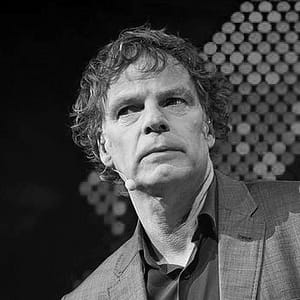
Winy MaasBio
Architect, founder & partner of MVRDV architecture agency, Rotterdam
Michel MeyerBio
Head of Geothermal Development at SIGReview session of the introductory part of the Theory Masterclass and visit to the neighborhood selected for the Design Studio.

Vincent MargoutBio
RSE Delegate (Corporate Social Responsibility) at Grand Paris Aménagement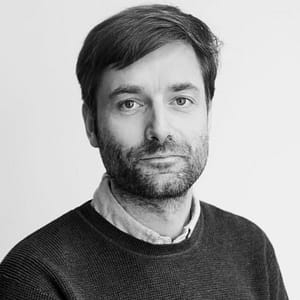
Guillaume de MorsierBio
Architect, urban planner, co-founder of Kunik de Morsier architectes, Lausanne (CH) and teacher at ENSA Marseille (FR)In a context of climate crisis and dwindling resources, this course explores how architecture and land use planning can actively contribute to the ecological transition. Adopting an ecological approach involves rethinking our ways of designing space, integrating new climatic, material, and social constraints into the heart of the project. We will cover the foundations of the bioclimatic approach, the history of passive comfort techniques, and current levers for reducing the ecological footprint of projects and developing a regenerative approach. Particular attention will be paid to bio-sourced, geo-sourced, and reused materials, as well as the notion of metabolism as a new framework for architectural and urban thinking.

Panos MantziarasBio
Director, Fondation Braillard ArchitectesAs the world enters a political and economic whirlwind that is diverting humanity from the trajectory of decarbonization and resilience, it is important to return to a body of essential references to find the direction of our actions. Consolidated in the long human experience by narratives as much mythological and spiritual as scientific and technical, this body of work reconstitutes an essential philosophical reference point for navigating with hope and determination towards the horizon of ecological transition.
Reception of the participants, presentation of the Fondation Braillard Architectes and its missions on the one hand, and of the philosophy, expectations and modalities of the Transition Workshop on the other. Thus are laid the premisses for interactive and collaborative work combining scientific knowledge, strategic foresight and conceptual and technical know-how in an unparalleled way, with the aim of eventually integrating the group into the active community of Transition Fellows.
In tribute to James Lovelock and Bruno Latour, this introduction to the 2025 season propses an articulation between environmental emergencies, the innovative potential of the design disciplines and the pathways towards the decarbonization and resilience of cities and regions in the short, medium and long term.
Why do we need to measure the progress of the ecological transition? How has the climate and its warming led us to establish a whole new generation of impact metrics and – even more importantly – of accountability metrics in these areas? In what crucial ways does decarbonization differ from resilience when we get to measure them? These questions will be addressed through a brief recourse to history, physics, chemistry, biology, but also to economics, the sociology of actors and, last but not least, design and planning. The objective is to arm participants with cross–knowledge tools, to help them build their own lines of reasoning for their future practice as transition strategists.
Coordination session about the third part of the Theory Masterclass.
This session is part of the full curriculum only.
Final coordination and preparation session before Design Studio 2025:
Final report of the Theory Masterclass
Presentation of the essay and writing recommendations
Review session of the introductory part of the Theory Masterclass and visit to the neighborhood selected for the Design Studio.
Review session for the second part of the Theory Masterclass

Yupar MyintBio
Head of Entrepreneurship, Impulse – for tech innovators, Maxwell Centre, University of Cambridge
Robert SadleirBio
Economist, founder of Bureau Haus ltd. – ECP scientific council member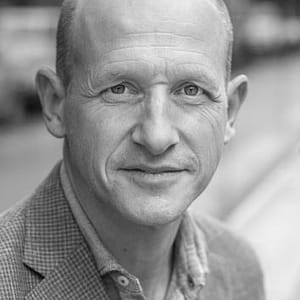
Martin SchlaepferBio
Senior Lecturer, Institute for Environmental Sciences, University of GenevaIn this lecture we will cover different approaches to ensuring that biodiversity and climate related concerns are integrated into projects and plans. First, we will discuss theoretical notions such as negative externalities and telescoping that are particularly relevant in developed cities such as Geneva. Then, we will cover different visions of sustainability, existing targets (for both climate and biodiversity), possible pathways to reach these targets, and indicators that measure progress. Finally, we look at existing tools that can mainstream biodiversity and ecosystem services.

Marlyne SahakianBio
Professor, Department of Sociology – University of Geneva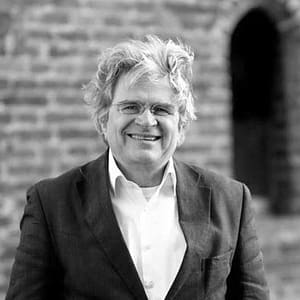
Dirk SijmonsBio
Landscape architect, founder of H+N+S Landscape ArchitectsMobilis in Mobile is a lecture about the question how we find guiding principles for policy and design with the wicked environmental problems of the Anthropocene. Four different worldviews, and the way they influence the perspectives for action. Next to these worldview the lecture also deals with the professional niches we could choose. Combining these two formative elements offers at least sixteen different positions a reflective practitioner could use to confront the challenges of the Age of Mankind.

Werner SobekBio
Engineer, architecte, University of Stuttgart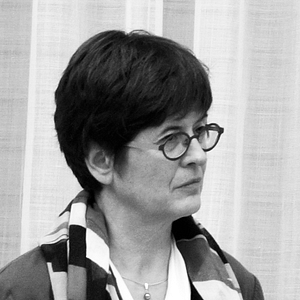
Michèle Tranda-PittionBio
Doctor in architecture and urban planing, University of Geneva
Benjamin VillardBio
Project manager, Delegate for the ecological transition and the agglomeration project
Paola ViganòBio
Architect, urban planer, director of Habitat Research Center (EPFL), professor at IUAV VeniceThe ecological transition through urban planning is a challenge that seems to be structural today in the way of engaging matter, flows and resources (including human ones) on a large scale. An in-depth understanding of the actors’ issues, and a selection of research and projects undertaken within the Habitat Research Center, often gathered under the term Horizontal Metropolis in several European sites (Italy, Switzerland, Belgium, etc.) will be presented and discussed with the participants.

Marjolein VisserBio
Professor at Université Libre de Bruxelles (ULB)Architects, urbanists, engineers and even landscape designers are trained to focus on building the places and spaces we live in, thus externalizing key aspects dealing with agriculture, ecology and food. So urbanisation typically ignores food needs and disables food growing. The first ambition of this workshop is to introduce a number of universal principles and concepts comings from systems ecology applied to agriculture and our agrarian past, present and future. While doing this, a wealth of further readings will be suggested to indeed further feed a food-enabling urbanism. The second ambition is to give practical hints for personal and collective regrounding toward genuine “food care” overall. Taken together, these elements should unlock fresh pathways to tackle our common 21st century challenges, through the prism of food.

Mathis WackernagelBio
Founder & President of Global Footprint Network – ECP scientific council memberOur economies are doing Bernie Madoff pyramid schemes with the planet (we are taking the resources of the future to pay for the present). As a result, humanity’s demand on nature today exceeds what Earth can replenish, eroding our natural capital and jeopardizing future regeneration of resources. Like any such system, this one, if not followed, can only lead to collapse. Such a catastrophe would destroy much of the progress of mankind.
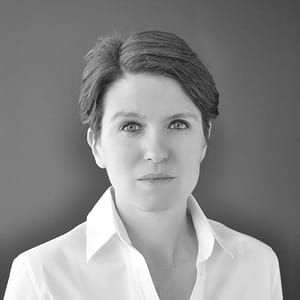
Gwenaëlle ZuninoBio
Research fellow, School of architecture of NancyCoordination session about the third part of the Theory Masterclass.
This session is part of the full curriculum only.
Final coordination and preparation session before Design Studio 2025:
Final report of the Theory Masterclass
Presentation of the essay and writing recommendations
Review session of the introductory part of the Theory Masterclass and visit to the neighborhood selected for the Design Studio.
Review session for the second part of the Theory Masterclass

 Fondation braillard architectes
Fondation braillard architectes


